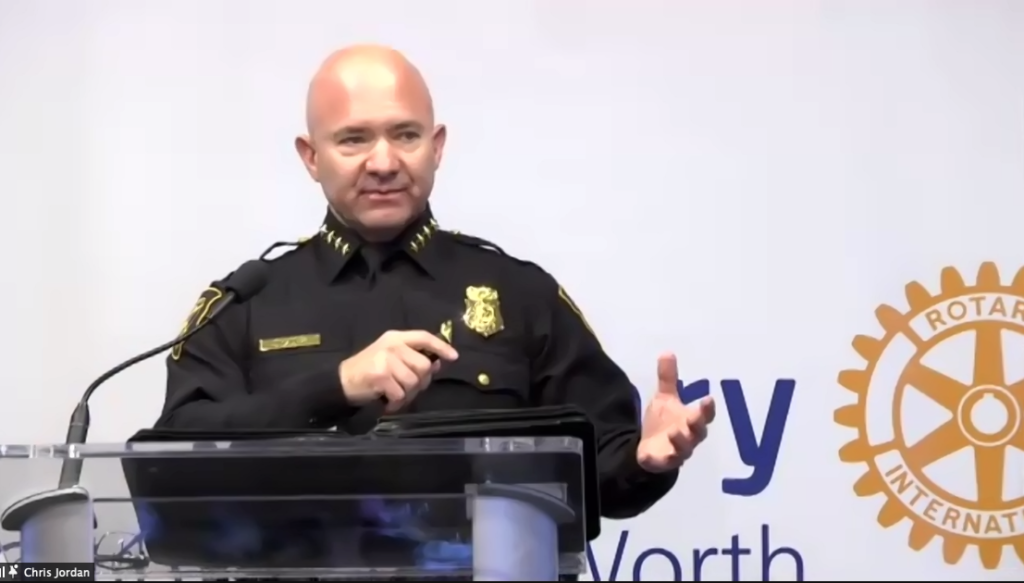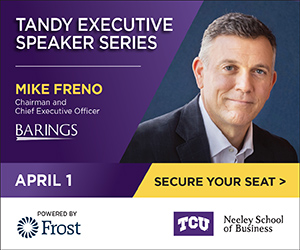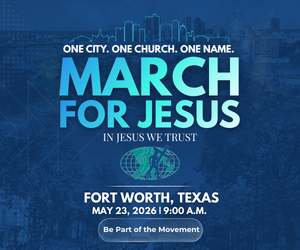The sixth and final part of a series on Crime in Fort Worth.
FWBP: Are you losing people to the suburbs? That used to be a big problem.. And what’s the general attrition rate as well for the force in terms of retirements and such?
Noakes: No. I think recently with some of the increases we made in pay and some of the incentives we have, and just the fact that we’re trying our best to retain employees. Sometimes it’s the dollar figures to get them in, but it’s the way you treat them that retains employees. I think we’re doing the best we can to try to treat employees well.
Morale is down across the nation with policing, but I think we’re doing a better job over the last few years here in Fort Worth of making sure we’re doing what we can to support officers. Let them know they’re appreciated. Let them know they are supported. We’re not seeing a lot, matter of fact if anything we’re seeing the reverse.
Since we’ve started doing lateral entry programs, which means people who fit certain criteria, we can bring them across to our department and they’re hired at a higher tenured rate than just a new hire. The academy’s shorter, we’re able to train them, get them out more quickly because they’re already licensed experienced police officers. We’re actually seeing some come from the suburbs and some other large cities, leaving those agencies to come work for us.
We are seeing quite a few retirements, nothing that we’re concerned about as not being able to provide service to the community. But there are a lot of people who I think have been in policing so long that are really on the edge trying to decide if they wanted to retire or not, been here 25, 30, 35 years and because I would believe, for some because of the climate, the negative narrative of policing, some of them decided it was just time to go.
FWBP: Study after study after study shows that employees, regardless of the profession, are interested among other things in opportunities to continue to learn. How are we doing on opportunities to continue to learn?
Noakes: Oh, we’re doing great. Come down and check out our training facility. You’re not going to find a better one anywhere in this area, I can guarantee that. You’d be hard pressed to find a better one in the nation. We have amazing facility with amazing training staff.
Not only do we have amazing personnel here but we partner with other organizations who provide amazing training, bring them in here and actually we’re bringing people from other agencies to be a part of the training with us. It’s kind of a regional approach. We’re working on some mentoring programs and some succession planning which is extremely important here at Fort Worth PD and within the city of Fort Worth as well.

Some of them are basic training just about the duties and functions of a police officer. Some are about our specialized units and then we also have more supervisory and even an executive level training programs. Some here at the academy, one lead program at TCU is for executive level training. Get 12 graduate hours for TCU and a certificate of completion upon completing the course. Those graduate hours will either transfer into TCU’s master’s program or you can take it somewhere else if you wanted to as well.
We’re encouraging officers to expand their knowledge base, whether that’s through traditional college or university training here at the academy, anything that’s going to help them do their job better and be better overall, again holistically. We encourage that and we’ve been seeing a lot more people take advantage of it.
Another thing I’ve seen as far as job satisfaction. I would say with the generations we’re seeing come in now, they want to know they’re making a difference. It’s not so much about the money. We have a hard time giving overtime away. They have a much better about work life balance than my generation ever did, which I respect and I applaud them for but they really want to know they’re making a difference.
“Why am I coming to work? It’s not just for the paycheck, I can get a paycheck anywhere.” It’s a very transient workforce, they’re not necessarily going to spend 30 years in the same job if they feel like they’re not doing something fulfilling to them. What we want to do here in Fort Worth is make sure the job is fulfilling and it meets their desire to actually make a difference in the community.
FWBP: Which brings us to millennials and younger generations.
Noakes: I know my first position as a supervisor was when I made sergeant and had a lot of people say, “Oh, why do you want to go babysit a bunch of whiny millennials?” That’s kind of the mantra I heard from some of the older officers.
That was an amazing team. They were incredible. They were excited to come to work, they were excited to do good things. One thing that people didn’t understand is they asked a lot of questions. It wasn’t because they were questioning anyone’s authority as a supervisor, they come from a generation where information is automatic. Whatever you want, pull out your phone, pull out a computer, you’ll know it in a matter of seconds. They’re inquisitive. They just want to know.
Sometimes I had the answer, sometimes I didn’t but I never tried to push away their questions because they really came from a good place. Despite what everyone said, how everyone warned me, that was one of the best teams I ever worked with and I worked with a lot of other millennials and they’ve been great. You look at any generation, any generation is going to have some members of that generation who are an issue. I’ve worked with pretty any generation you can think of, they’ve all been amazing, including millennials. They get a bad rap.
FWBP: Is there one question you get from the public most and what’s the biggest misconception you think people have about police departments?
Noakes: I can tell you the question I get the most is, “Chief Garcia, how do you do you like Texas?” Everybody thinks I’m [Dallas Police Chief] Eddie Garcia. I’ve had people, I had someone the other day say, “Welcome to Texas. Welcome to Fort Worth.” I got to where I just say thank you. I’m not explaining anymore.
Actually, the first time I met him in person, we both had masks on and I realized he’s the same height, we’re about the same build. Same haircut. I definitely see where it’s coming from. I told him I said, “Wow, everybody is confusing you for me, I didn’t realize you were such a good looking guy Eddie.” We actually showed up in a meeting recently, one of the first times we’ve been in a meeting with other people around. When I walked in Chief Garcia said, “I’m so glad you’re here so they’ll see that we’re both here at the same time and really realize who it was.”
On a serious note, I think the biggest misconception in policing right now is that we’re all bad people.
You have officers out there that don’t need to be wearing the badge. They don’t need to be having a gun. They don’t need to wear a uniform. In Fort Worth we’re doing the best we can to make sure we hire the right people, that some get through who don’t need to be here, we take action. We hold people accountable. If they don’t need to be here, we get rid of those officers.
The overwhelming majority of the officers in law enforcement in general, and I will say the Fort Worth Police Department specifically, are absolutely amazing people whose hearts are in the right place, who are here to serve. They have that servants heart and they want to make a positive difference. If people look at all of us as if we are [Minneapolis Police Officer Derek] Chauvin, people look at all of us like someone in another part of the country or even right here who have done something negative, they’re missing out on some really amazing people.
If they would just get to know us and let us get to know them, I think most people would see we’re not so different. It doesn’t matter what color your skin is, it doesn’t matter what your ZIP code is. It doesn’t matter what your faith is. We’re all human beings. In my opinion, we’re all children of God, we all have value. We all matter and we need to make sure we recognize that.
I see we, we as policing, we need to do the same thing. We need to do some things better. We need to make sure that we’re out there leading that effort, not waiting for the public to come to us, but leading the effort to make sure we make those public inclusion efforts a positive thing and make sure we understand, “Hey, we’re all here for the same reasons, let’s work together to make Fort Worth the best it possibly can be.”








